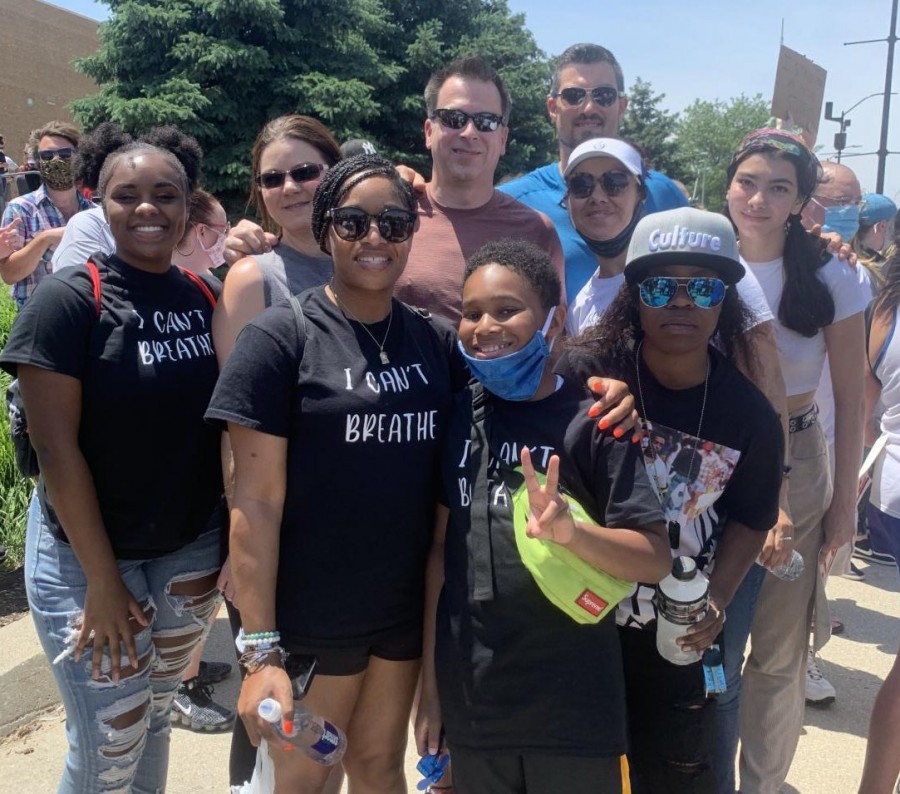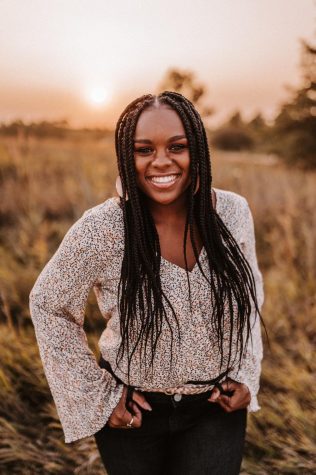In Iowa’s Scott County, a person of color is 12 times more likely to be picked up by a police officer.
It’s the reason I do not drive over the speed limit. It’s why I feel more comfortable having my white sister in the front seat with me than my black sister. It’s why my Latina best friend and I never leave our houses without our IDs. As a young black woman living in America, these are just a few things I have to think about daily. This is the reality for black Americans.
The Black Lives Matter Organization (BLM) was founded in 2013 after a Florida man fatally shot Trayvon Martin, an unarmed black 17-year-old, whose only crime was having dark skin. The trial–which ended with an acquittal–shed light on how our justice system fails to serve justice to black Americans. The organization actively works to have black voices heard beyond their communities.
In its origins, BLM’s focus was on ending racially-charged police brutality and the mistreatment of black people across the country, issues that society has turned a blind eye to for decades. For generations, black communities have been treated as if they are lesser than white people. This organization has since become a movement that supports black businesses, art, culture and history.
But there is still an underwhelming amount of representation for black people in the film, art and photography industries. People with my skin color makeup only 3.7 percent of art-related occupations. That means kids–black and white–are growing up with a lack of diversity in the entertainment industry.
Locally, there is little representation of black people as school administrators, teachers and business owners.
Growing up in a predominantly white community is not easy. I have never had a teacher of color. This may seem insignificant, but for a little black girl, it is immensely important to have someone at school to look up to everyday. It is important for black boys to see successful black men running companies. But I often go days without seeing a black man in Bettendorf. It is not that there is a shortage of successful black people– it is that they only make up 3.5 percent of our community.
As a young African American in this suburban city, my blackness is often overlooked. Since most of my childhood friends were not black and my family is of a different race, many thought racial slurs or inappropriate comments towards my race would not affect me. There was a point in time I let it slide, simply because I did not want to be seen as the black girl causing issues or calling someone racist.
But BLM has given me, and many other women, the confidence to stand up to the blatant disregard for our culture, history, mental health and general well-being.
This movement has given black people the space to support each other and share their stories with one another. Because of BLM, I have met some of my favorite people in the black community.
The organization gave me the opportunity to meet Brittani Dudley, a black business woman from Des Moines, with whom I share many ideals. “The movement opened my eyes to a lot of things that we can get caught up with in life. It opened my eyes to who my true friends are. If you don’t respect Black Lives Matter, you don’t respect me,” said Dudley.
My newfound voice isn’t always accepted or appreciated, which became apparent this past summer when several friends and family members criticized my activism. Regardless, I am grateful for the new family that the movement has brought me.
Dudley rawly expressed how life could become more complicated for me as I get older. “I feel like we have to overcompensate for ourselves. You have to articulate, dress in a certain way, have more education and overall do more, she said. “If I have to get a masters and the job doesn’t require it, I’m going to do it. If they tell me, ‘No,’ they gotta have a good damn reason.”
Black Lives Matter is the reason why so many young black adults have been able to come together to support one another through these unprecedented times. It’s the reason more black businesses are getting attention. It’s why we are able to fight for change together. BLM is the reason I found myself and my voice.
This is the reason America needs Black Lives Matter.









